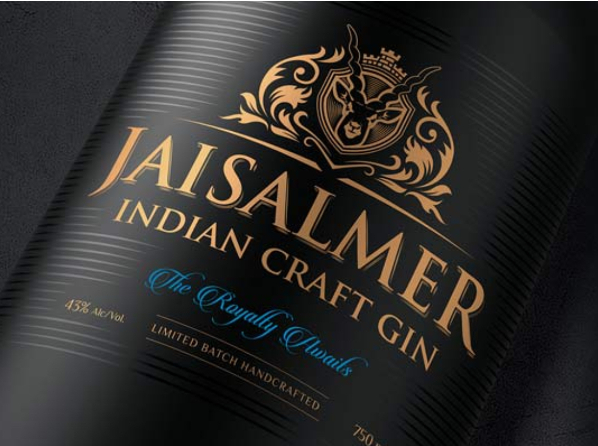Indian Gin & Distilleries in India
On This Page: Indian Gin and Distillery directory, reviews and tasting notes, distillery tours in India, interviews with Indian distillers, and industry insights with X.
|
India is the home of the humble G&T and as such it has had a long history with gin. That said, production of gin has only been happening in India in more recent years. In this time there have been a small number of releases that tend to lean into fragrant and earthy profiles, utilising the countries abundance of spices.
|
Indian Gin Reviews - A to Z
- Jaisalmer Gin - Info & Review | Buy / Garnish: Orange or Grapefruit
For more Indian Gins try Clearly Good Gin, 'Gin Gin', Greater Than Gin, Hapusa Gin, Jin JiJi, Matinee Gin, Nilgiris Gin, Pumori Gin, Samsara Gin, Stanger & Sons Gin, Terai Gin and Tickle Gin.
INDIAN GIN FACT!
- Gin's most famous serve, the gin and tonic, was born in India. In the 18th century, Britain occupied India and the soldiers would have to ingest quinine to prevent malaria. It was mixed with water and sugar (the first tonic water). Lime was added for flavour and eventually some clever sausage thought to add their gin.
Meet the Makers
Get to know some of India's finest gin creators and distillers in our 'Meet the Maker' interviews. Find out what inspired them and how they created and launched their gin, how it's made, what botanicals are used, what you can experience if you visit their distilleries, how best to serve their gins and what they have planned for the future:
The Inside Scoop
We caught up with Sakshia Arora - Marketing Manager of Radico, who produce Jaisalmer Gin in India, to find out what makes Indian Gin special and how the industry has grown in recent years:
What is India's history with spirits and distilling?
Sakshia: As per some historians, Alcohol distillation originated in India during the Indus Valley civilisation between 3000 BC and 2000 BC. The Ayurvedic texts mention the benefits as well ill effects of alcoholic beverages, but conclude that consumption of alcohol in moderation can act as a medicine. There is also mention of alcohol in Hindu epics Ramayana and Mahabharata.
How has the Indian Gin industry developed in recent years?
Sakshia: In India, gin as a category had died till the past few years. However, in line with global revival of demand for gin, India is also seeing growing popularity of gin. Though starting from a near non existent base, the consumption is increasing very rapidly. Even though Gin & Tonic originated in India, but till recently there were no world class gins being made in India. However, the scenario has changed in the last three years and number of craft gin brands are now available not only for Indian domestic market but also being exported globally.
What makes Indian Gin different / special?
Sakshia: The knowledge of herbs and use of botanicals is a time honoured tradition in India. The recipe of Jaisalmer Indian Craft Gin is derived from this ancient knowledge. Geographical location also add to the mysticism of Indian gins. Our endeavour is to share the unique flavours of India with the world. Jaisalmer Gin has only 11 botanicals and of these 7 have been sourced from four corners of India including Darjeeling Green Tea leaves and Vetiver.
What's next for the gin industry in India?
Sakshia: The future of Gin in India looks very promising. Growing consumption coupled with innovation and experimentation on botanicals & flavours augurs well for both Indian and Global consumers. The journey has just started.
What is India's history with spirits and distilling?
Sakshia: As per some historians, Alcohol distillation originated in India during the Indus Valley civilisation between 3000 BC and 2000 BC. The Ayurvedic texts mention the benefits as well ill effects of alcoholic beverages, but conclude that consumption of alcohol in moderation can act as a medicine. There is also mention of alcohol in Hindu epics Ramayana and Mahabharata.
How has the Indian Gin industry developed in recent years?
Sakshia: In India, gin as a category had died till the past few years. However, in line with global revival of demand for gin, India is also seeing growing popularity of gin. Though starting from a near non existent base, the consumption is increasing very rapidly. Even though Gin & Tonic originated in India, but till recently there were no world class gins being made in India. However, the scenario has changed in the last three years and number of craft gin brands are now available not only for Indian domestic market but also being exported globally.
What makes Indian Gin different / special?
Sakshia: The knowledge of herbs and use of botanicals is a time honoured tradition in India. The recipe of Jaisalmer Indian Craft Gin is derived from this ancient knowledge. Geographical location also add to the mysticism of Indian gins. Our endeavour is to share the unique flavours of India with the world. Jaisalmer Gin has only 11 botanicals and of these 7 have been sourced from four corners of India including Darjeeling Green Tea leaves and Vetiver.
What's next for the gin industry in India?
Sakshia: The future of Gin in India looks very promising. Growing consumption coupled with innovation and experimentation on botanicals & flavours augurs well for both Indian and Global consumers. The journey has just started.




